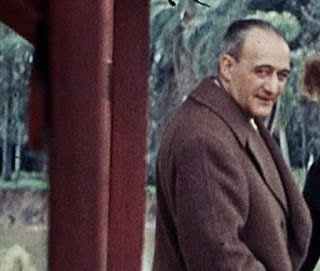In chapter 4 of his book “How Good Do We Have to Be, Rabbi Harold Kushner writes the following: “The hardest part of writing this chapter for me was facing up to my memories of my own parents, now both deceased, and the buried resentments I still carry toward them for the mistakes they made.” As a reader, this sentence was for me the most significant of the entire text. I have deep admiration for authors who self-disclose their own emotional difficulties and don’t try to be experts in any matter. Author sincerity induces the reader to reflect on his or her own emotional journey, and that is exactly what happened to me. My parents were part of the Italian war generation who fled Italy for being deeply antifascist. They were lucky enough to end up in Argentina which, at that time, was a paradise for immigrants. Needless to say, Peron had not yet started to intervene in politics. Because my father had been raised by a very strict parent, when he became a father, he decided to raise us in the only way he knew: by being demanding, emotionally distant, and expecting his children to do exactly as he said. Needless to say, his parenting skills reflected that in that area he was far from being an expert. As a result of his lack of competence, my childhood at home was not a happy one. Although my brother and I never lacked anything, our many friends were our real source of comfort. However, despite all his parenting mistakes, my father was a responsible man who took care of his family the best he could. He also taught us to be responsible, honest, and generous. So, when I read Rabbi’s Kushner statement, I started asking myself if I also felt resentment against a too strict and distant father. I started analyzing if expecting that our parents should be expert caretakers was not being childish on our part. When we grow up and become parents ourselves, we understand how difficult it is to raise another human being without expecting him or her to comply with our image of the perfect son or daughter. However, our children come to the world with their own temperament and their own journey to follow. It goes without saying that we need to guide them to the best of our knowledge, but at times we also need to understand their need to learn from their mistakes. So, going back to my father, it is true that I would have liked to have a more tolerant father, but I understand that his own childhood prevented him to be that way. Do I feel resentment for all the moments he was emotionally distant? Although I feel sadness, I am not resentful because I know that in his own way, he loved me deeply. Not only that, he made sure that my life was much more comfortable that his had been. In other words, he did the best he could. RIP










